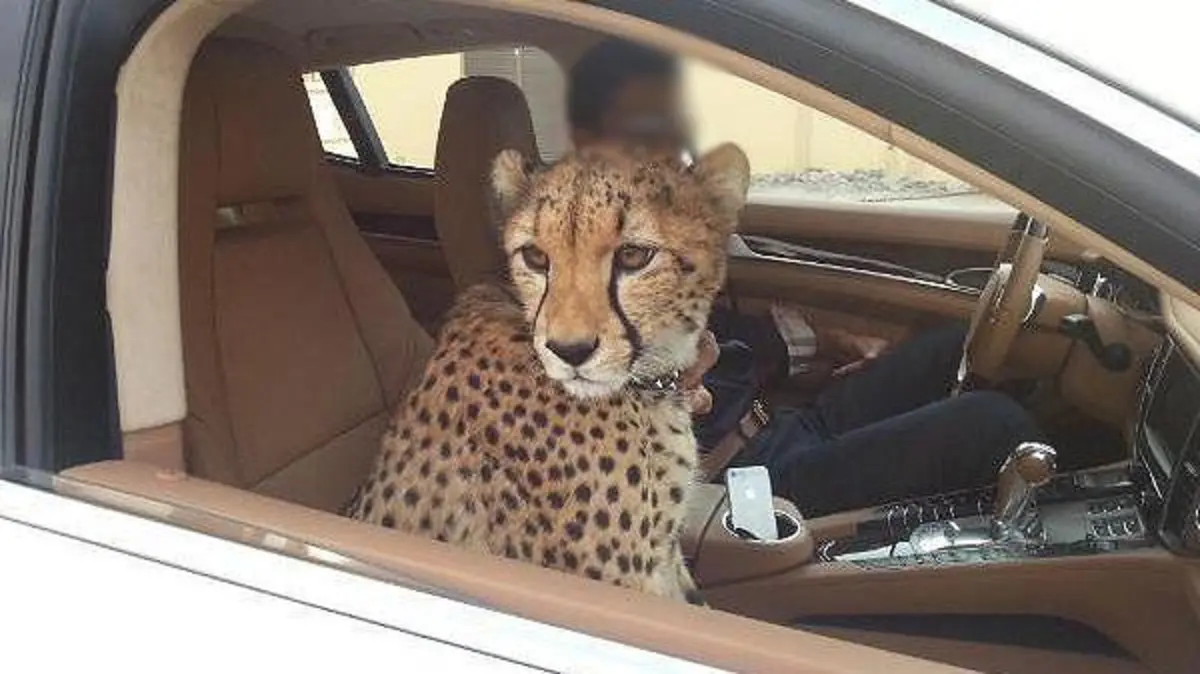Why did a cheetah cross the road? Why was a camel spotted at a petrol station? Why was an ox tied to a parking sign? These aren’t riddles but real incidents that have happened in the UAE over the years.
A Cheetah on Al Mina Street
On a breezy Tuesday afternoon, December 7, 2010, motorists and pedestrians in Sharjah were shocked to see a cheetah on the busy Al Mina Street. The big cat had escaped from Khalid Port, panicking and looking for shelter.
The chaos caused a traffic jam as the cheetah retreated near Al Magfira Mosque by the Radisson SAS Hotel. Sharjah Police quickly cordoned off the area, caught the animal, and handed it over to the Environment and Natural Reserves Authority. An investigation was launched to track down its owner.
Hana Saif Al Suwaidi, the then-director of the Environment and Natural Reserves Authority, shared that keeping wild animals as pets was not uncommon in Sharjah. She highlighted that this was the third such incident that year, following reports of a venomous snake and a tiger being caught by authorities. Those involved faced charges of endangering public safety.
A Camel at a Petrol Station
Rewind to June 8, 2002, in Fujairah’s Dibba area, where a camel nonchalantly strolled past a petrol station. Dubbed the “ship of the desert,” the camel caused no commotion and continued its journey without a handler in sight.
An Ox in the Heart of Dubai
Fast forward to November 26, 2009, in Deira, Dubai, where an ox was found tied to a parking sign. Passersby snapped photos of the unusual sight as the ox chewed on greens. The incident occurred on the eve of Eid Al Adha, and the ox was likely being prepared for sacrifice. Whether the owner paid the parking fee remains a mystery.
Strict Regulations and Heavy Fines
Authorities have consistently warned residents against keeping wild or exotic animals. Violators face fines of up to Dh500,000. Barney Almazar, a legal expert at Gulf Law, emphasized, “Keeping dangerous animals as pets is prohibited in the UAE.” He noted that wild animals are only allowed in authorized facilities like zoos, breeding centers, and scientific research institutions.
For smaller and less dangerous pets, such as certain dog breeds, cats, birds, non-venomous reptiles, and small mammals, ownership is generally permitted. However, strict penalties apply if an animal attacks someone. These include imprisonment ranging from three to seven years for injuries and life imprisonment for fatal attacks.





